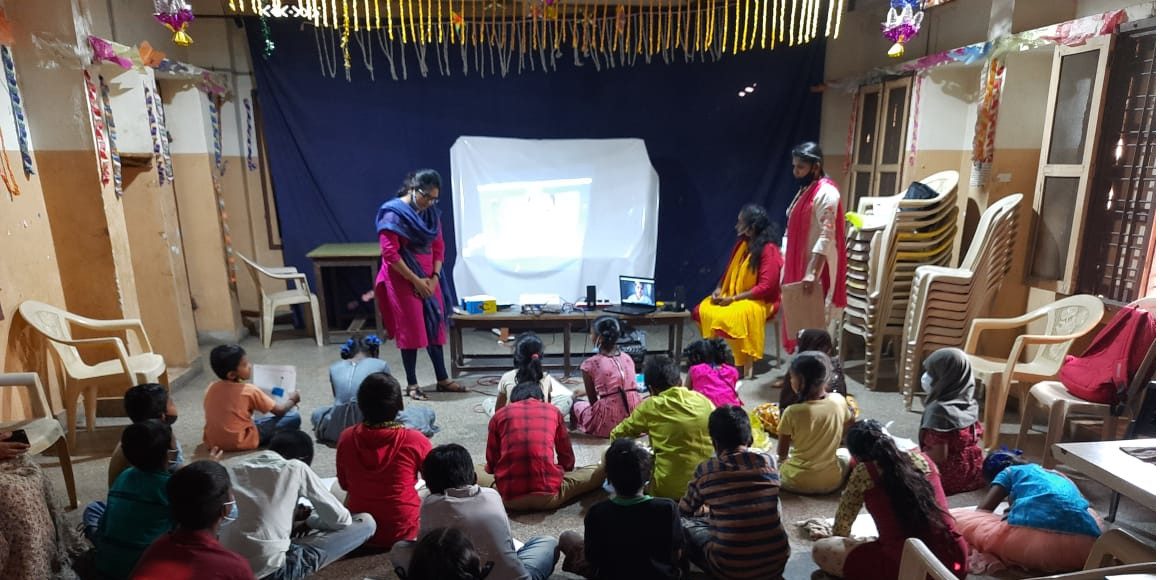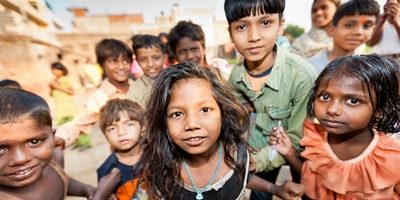
A step towards building an adolescent’s friendly society – experiences shared by Srilatha Paslawar, Research Fellow
Involving adolescents as “experts” in any work involving them is one of the crucial components of building an adolescent-friendly society. As part of our study called ARTEMIS (Adolescent Resilience and Treatments Needs for Mental Health in Indian Slum), we have constituted an Adolescent Expert Advisory Group (AEAG). The group has adolescents serving as experts and providing insights that would help build an anti-stigma campaign.
In this blog post, I would like to briefly reflect on my experiences of engaging with the Adolescent Expert Advisory Group (AEAG) as part of our study that seeks to explore associated risk and resilience factors for common mental disorders like depression, anxiety and suicide risk/self-harm among adolescents (10-19 years) living in selected urban slums of Delhi & Vijayawada.
Adopting hybrid modes of connecting and interacting
Due to the ongoing COVID-19 pandemic lot of work on the ground has been hampered and it was no different for the ARTEMIS study, especially at the Vijayawada site which started 3 months later than the Delhi site. This delay meant that multiple tasks were going on simultaneously in Vijayawada such a mapping of study slums, recruitment of field investigators for listing, listing training and preparations for conducting the pre-AEAG meetings with adolescents.
Since we cut down on frequency of travel to the study site and also found it difficult to conduct these meeting face to face hence we adopted hybrid modes of connecting and interacting with the adolescents - field staff connected with them face to face and research staff through virtual mode, which was a challenge.
I found it easy to interact with the younger adolescents as they were very excited and wanted to express their ideas and feelings and wanted to sing and dance. But it was completely different when dealing with older adolescent girls who were very quiet and were not able to talk freely about their feelings. However, the boys were quite vocal and were able to discuss problems around them and I was able to have a fruitful discussion.
Planning meetings in the virtual mode
I am working with adolescents for the first time in my career and it is challenging to adapt various techniques to bring in innovative ways to work with them. I got a good exposure while working with this AEAG group formation, because adolescents are very sensitive to deal with and making them understand about mental health is a task.
By planning and organising a series of meetings with adolescents, I learnt things which needs to be focused on while working with adolescents. It requires detailed planning in terms of allocation of resources to activities, understanding the context initially before going to the field, in terms of geography, the best time to approach, pre-existing programmes conducted by the NGOs for adolescents and to understand what challenges they faced during that time.
Sharing key learnings
With these learnings now we are doing better microplanning of activities like meeting with adolescents concerning their availability, venues and other resources.
As a researcher, it has made me more vigilant towards taking up tasks, have learnt to accept unexpected challenges in the field and find possible ways to mitigate these challenges to increase efficiency. I am very keen to work further with these young people in the community and contribute my part to bring a better change in the society.


